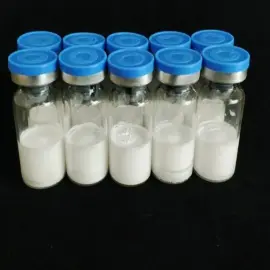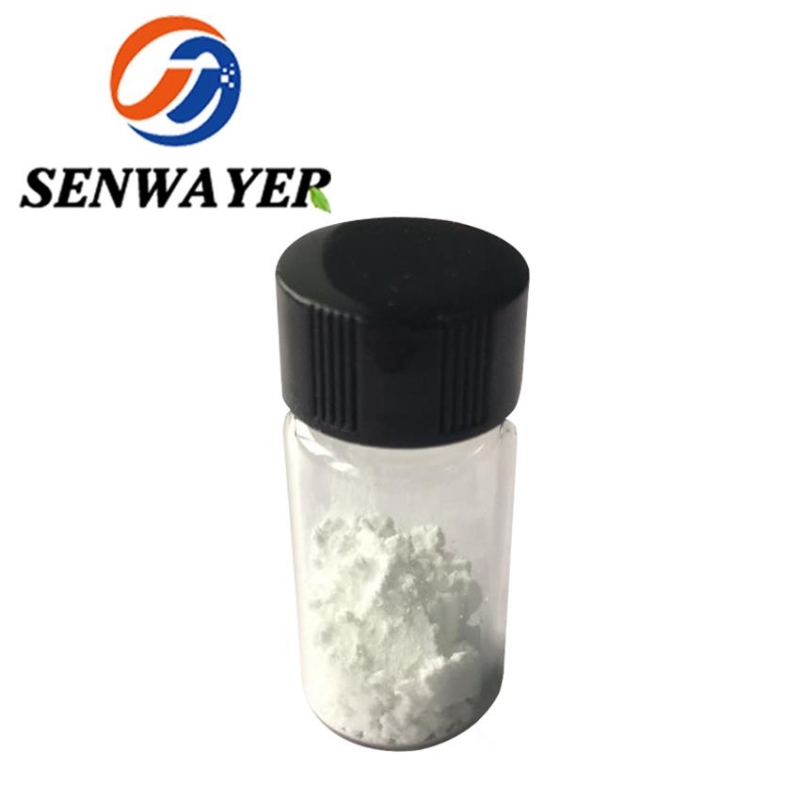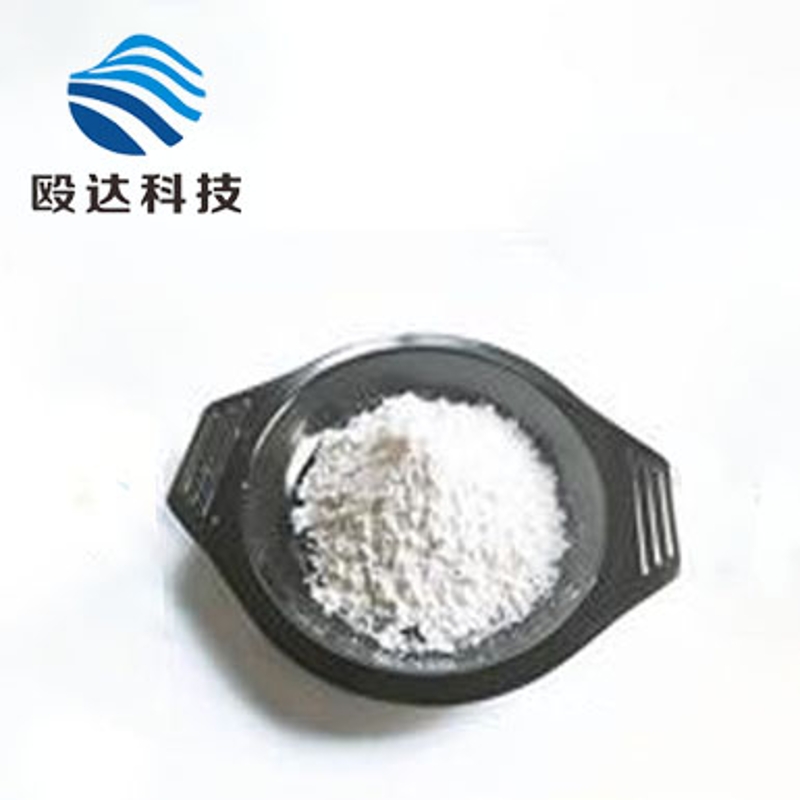-
Categories
-
Pharmaceutical Intermediates
-
Active Pharmaceutical Ingredients
-
Food Additives
- Industrial Coatings
- Agrochemicals
- Dyes and Pigments
- Surfactant
- Flavors and Fragrances
- Chemical Reagents
- Catalyst and Auxiliary
- Natural Products
- Inorganic Chemistry
-
Organic Chemistry
-
Biochemical Engineering
- Analytical Chemistry
- Cosmetic Ingredient
-
Pharmaceutical Intermediates
Promotion
ECHEMI Mall
Wholesale
Weekly Price
Exhibition
News
-
Trade Service
On an autumn evening, as smoke rises in the distance, global pharmaceutical companies sit around the fireside and play the game
of "I have you or not".
of "I have you or not".
When the bookmaker talked about PD1, the major pharmaceutical companies raised their hands in response, wanting to make the bookmaker lose completely
.
And when the bookmaker came up with the "lore" and the ADC drug targeting Nectin-4 under development, only 9 pharmaceutical companies in the world raised their hands, and some pharmaceutical companies had not even heard of it
.
What is Nectin-4? Why are there only 10 pharmaceutical companies in the world?
What is Nectin-4? Why are there only 10 pharmaceutical companies in the world?Role of Nectin-4 in tumors
Role of Nectin-4 in tumorsUrothelial carcinoma is a malignant tumor originating in the urothelium of the bladder and is one of the most common malignancies of the urinary system, accounting for more than
90% of bladder cancers.
In 2020, there were 516,000 new cases of urothelial carcinoma worldwide, of which about 77,000 were new in
China.
It is estimated that by 2025, the number of new cases of urothelial carcinoma worldwide will reach 586,000 (about 91,000 cases in China).
Figure 1 Number of new cases of urothelial carcinoma Source: East Asia Qianhai Securities
The treatment of bladder cancer is still mainly
chemotherapy.
chemotherapy.
According to the guidelines for the diagnosis and treatment of bladder cancer (2022 edition) of the National Health Commission, platinum-based combination chemotherapy is the most important and basic treatment method
for patients with metastatic bladder urothelial carcinoma.
Anti-PD-L1 checkpoint inhibitor immunotherapy can be received if platinum therapy is not effective, but the response rate of immune checkpoint inhibitors is only about 20% on average, and patients do not have access to supportive care
.
Therefore, there is an urgent need for new and more effective treatments to treat urothelial carcinoma
.
.
Tumor antigens are expressed on the surface of tumor cells and are potential targets
for innovative drug development.
One of these antigens is tumor-associated nectin-4, a member of the nectin family in the immunoglobulin superfamily and overexpressed
in most urothelial carcinomas.
Two variants of Nectin-4 have been reported
.
Nectins has three domains:
.
Nectins has three domains:
The cell region consists of three conserved Ig-like rings (one IgV ring and two IgC rings).
Transmembrane domain
Cytoplasmic domain, containing an AFADIN binding module
Figure 2 Nectin-4 structure Source: Nature Drug Discovery
Studies have shown that in the development of tumors, Nectin-4 is associated
with promoting cancer cell proliferation and metastasis by activating the Rac small G protein in the WNT-β-catenin and PI3K-AKT signaling pathways.
Nectin-4 also interacts with the tyrosine kinase receptor ERBB2 to promote its activation, thereby stimulating the PI3K-AKT signaling pathway
.
.
However, overexpression of Nectin-4 alone is not sufficient to demonstrate its importance for pathogenicity, and direct evidence
of ECTIN-4 as a cancer driver gene is still lacking.
Although nectin-4 has been shown to be a prognostic marker for various cancers, its clinical effectiveness needs to be further demonstrated, and other outcome predictors may need to be supplemented with nectin-4 to provide sufficient clinical accuracy and utility
.
There are only ten clinical studies in the world
There are only ten clinical studies in the worldAntibody-conjugates (ADCs) are a class of drugs
designed to target antigens on the cell surface.
Nectin-4, as an antigen on the tumor surface, is theoretically an effective target for ADC drug design
.
Enfortumab vedotin is an ADC
for nectin-4.
for nectin-4.
Composed of human anti-nectin-4 antibodies and cytotoxic microtubule destroyer monomethyl auristatin
E (MMAE) composition, after injection into the human body, through antibody-antigen binding, so that the drug is enriched at the tumor site
.
Subsequently, the linker between the protease hydrolyzed antibody and the payload MMAE releases MMAE, which disrupts the microtubules and induces apoptosis14
.
.
Fig.
3 Anti-tumor mechanism of action of Enfortumab vedotin Source: Nature Drug
Discovery
In 2019, Enfortumab
Vedstar (Padcev) is approved by the FDA for the treatment of locally advanced and metastatic urothelial carcinoma, becoming the first and only ADC
approved for nectin-4.
February 2020, Enfortumab
The combination of Veditin and pembrolizumab has been recognized by the FDA as a breakthrough therapy as a first-line treatment for cisplatin-eligible patients
with locally advanced or metastatic urothelial cancer.
In 2020, Padcev sales exceeded $200 million
.
Figure 4 Enfortumab vedotinPadcev, source: Astellas Pharma
In addition to Enfortumab vedotin, four of the drug candidates targeting Nectin-4 are in clinical phase II and six in preclinical stage
.
Table 1 Investigational drugs targeting Nectin-4
Source: Pharma Data
The challenge of targeting Nectin-4
The challenge of targeting Nectin-4Nectin-4 primarily serves as a binding platform for the ADC-class drug Enfortumab vedotin to deliver payload MMAE and destroy cancer cells
expressing nectin-4.
It has been suggested that tumor shrinkage is due to toxin delivery rather than anti-nectin-4 antibodies, for example, the anti-nectin-4 antibody AGS-22M6 without payload has no intrinsic antitumor activity
in vitro or in vivo.
Therefore, in the design of drugs targeting Nectin-4, it is necessary to fully realize this, whether to act directly on nectin-4, or to use this as a platform to design ADC drugs?
Therefore, in the design of drugs targeting Nectin-4, it is necessary to fully realize this, whether to act directly on nectin-4, or to use this as a platform to design ADC drugs?The main reason why targeting Nectin-4 first made a breakthrough in the treatment of bladder cancer is that Nectin-4 is overexpressed
in almost all bladder cancers.
But nectin-4 is also present in normal tissue, which is Enfortumab
One reason why
vedotin is toxic.
To reduce targeted toxicity, ADCs need to be further optimized, including the use of engineered antibodies, novel linkers, ligation methods, and payloads
.
vedotin is toxic.
To reduce targeted toxicity, ADCs need to be further optimized, including the use of engineered antibodies, novel linkers, ligation methods, and payloads
.
Although ADCs are potent anticancer agents, resistance to ADCs can also develop
.
Because the resistance mechanism is compatible with the specific properties and interactions of the three components of the ADC (i.
e.
, antibody, linker, and payload), adequate preclinical experiments are required to understand what causes overall ADC resistance, thereby improving the long-term therapeutic efficacy of
ADCs.
brief summary
brief summaryThe tumor-associated antigen nectin-4 is selectively overexpressed in urothelial carcinoma and other cancer types and represents a viable anti-cancer therapeutic target for ADCs, although its actual role in tumorigenesis is less significant
.
Enfortumab vedotin is the first FDA-approved nectin-4-guided ADC, confirming that targeting nectin-4 for cancer therapy is feasible
.
With the maturity of ADC technology, it is believed that more targeted drugs will be developed in the future
.
.
References
1.
East Asia Qianhai Securities Research Report
2.
Nature Reviews Urology volume 18,pages93–103(2021)







